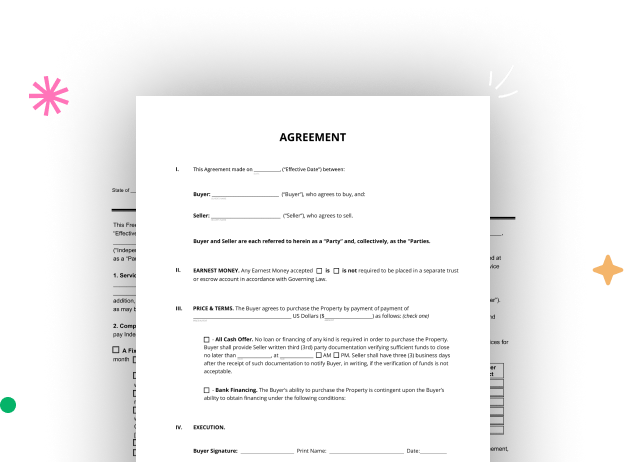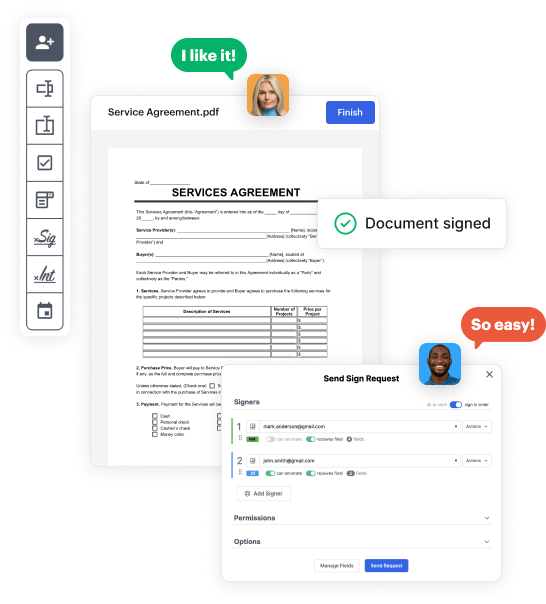

Start by logging into your DocHub account. Try out the advanced DocHub functionality free for 30 days.
Once signed in, go to the DocHub dashboard. This is where you'll build your forms and handle your document workflow.
Hit New Document and choose Create Blank Document to be redirected to the form builder.
Use the DocHub tools to add and arrange form fields like text areas, signature boxes, images, and others to your form.
Add needed text, such as questions or instructions, using the text field to lead the users in your form.
Alter the properties of each field, such as making them mandatory or formatting them according to the data you expect to collect. Designate recipients if applicable.
After you’ve managed to design the Michigan Real Estate Legal Document, make a final review of your form. Then, save the form within DocHub, export it to your preferred location, or share it via a link or email.